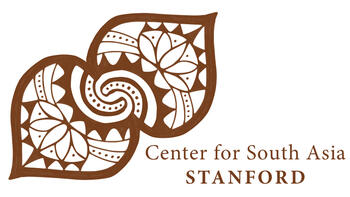Eight Threats to Freedom of Expression in India
Eight Threats to Freedom of Expression in India
Wednesday, April 5, 20174:30 PM - 6:00 PM (Pacific)
Due to venue capacity limits, we are no longer accepting RSVPs for this event.
India prides itself on being the "world's largest democracy". In some respects it is certifiably democratic; as in the regular conduct of free and fair elections. But in other respects there are deficits. One such area is freedom of expression. While Indian writers, artists and film-makers are certainly freer than their counterparts in totalitarian countries such as China, they are less free when compared to their colleagues in democracies such as Sweden or the United States. This lecture identifies eight distinct threats to freedom of expression in India, the most important of which are the presence of archaic colonial laws and the rise of identity politics.

Guha’s books include a pioneering environmental history, The Unquiet Woods (University of California Press, 1989), and an award-winning social history of cricket, A Corner of a Foreign Field (Picador, 2002). India after Gandhi (Macmillan/Ecco Press, 2007) was chosen as a book of the year by the Economist, the Washington Post, the Wall Street Journal, the San Francisco Chronicle, Time Out, and Outlook, and as a book of the decade in the Times of India, the Times of London, and The Hindu. His most recent book is Gandhi Before India (Knopf, 2014), which was chosen as a notable book of the year by the New York Times.
Apart from his books, Guha also writes a syndicated column, that appears in six languages in newspapers with a combined readership of some twenty mllion. Guha’s books and essays have been translated into more than twenty languages. The New York Times has referred to him as ‘perhaps the best among India’s non fiction writers’; Time Magazine has called him ‘Indian democracy’s pre-eminent chronicler’.
Ramachandra Guha’s awards include the Leopold-Hidy Prize of the American Society of Environmental History, the Daily Telegraph/Cricket Society prize, the Malcolm Adideshiah Award for excellence in social science research, the Ramnath Goenka Prize for excellence in journalism, the Sahitya Akademi Award, and the R. K. Narayan Prize. In 2009, he was awarded the Padma Bhushan, the Republic of India’s third highest civilian honour. In 2008, and again in 2013, Prospect Magazine nominated Guha as one of the world’s most influential intellectuals. In 2014, he was awarded an honorary doctorate in the humanities by Yale University. In 2015, he was awarded the Fukuoka Prize for contributions to Asian studies.
About the colloquia:
In 2014, Indian voters gave Narendra Modi and the BJP a mandate to accelerate India’s economic reforms and revitalize its foreign relations, in particular with the United States and with partners in East Asia. But the pace and depth of reforms and economic transformation have not met the high expectations, despite strong GDP performance. Economic growth remains uneven, job creation sluggish, and massive infrastructural and administrative problems continue to trouble many sectors of the economy. After twenty-five years of economic reforms, India’s potential as a new global industrial hub has still not been realized and its vast resources of labor and talent remain underdeveloped.
During the 2017 winter and spring quarters Shorenstein APARC and the Center for South Asia will host a series of lectures and discussions that explore what makes India democratic and dynamic, and the obstacles that prevent the country from realizing its enormous potential.
Also, in 2017, the next Global Entrepreneur Summit will be in India, sequel to the 2016 Stanford-hosted Summit. This colloquium will help prepare for that event by reaching out to scholars, students, interested stakeholders, business leaders and others in the Bay Area.
This colloquia is co-sponsored with the Stanford Center for South Asia

